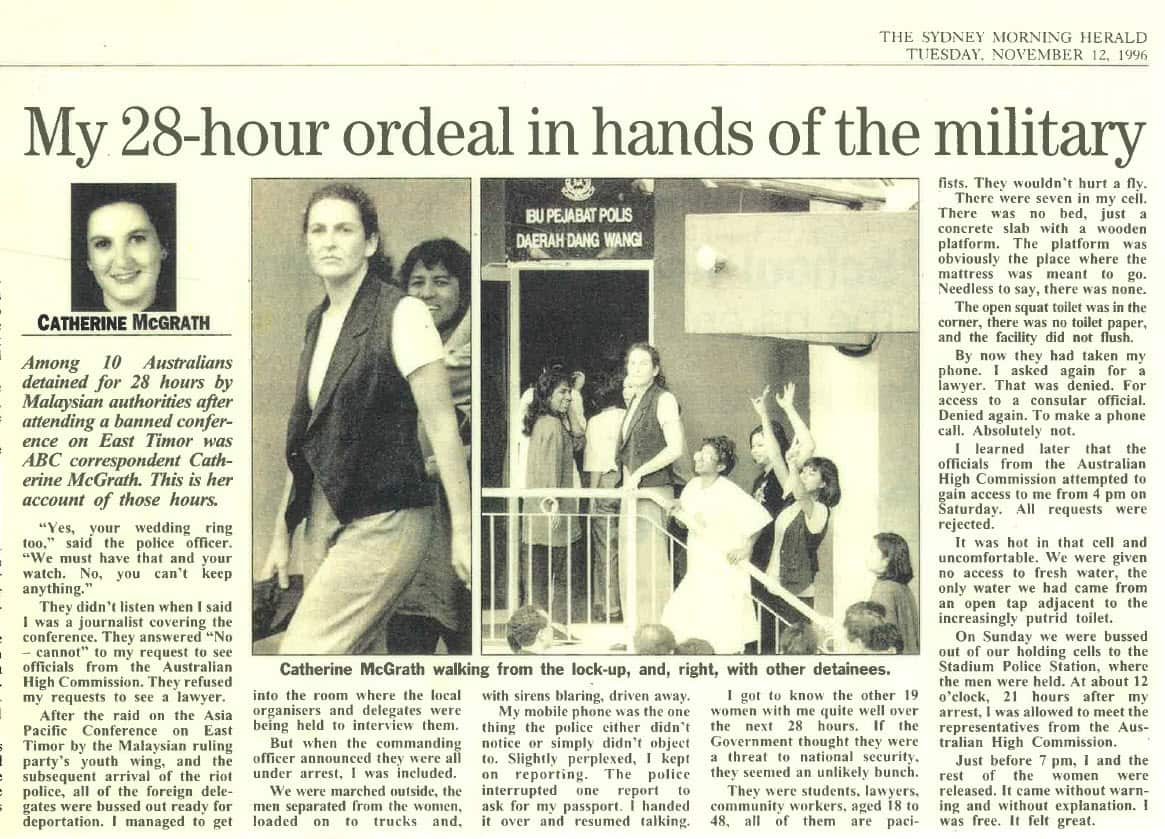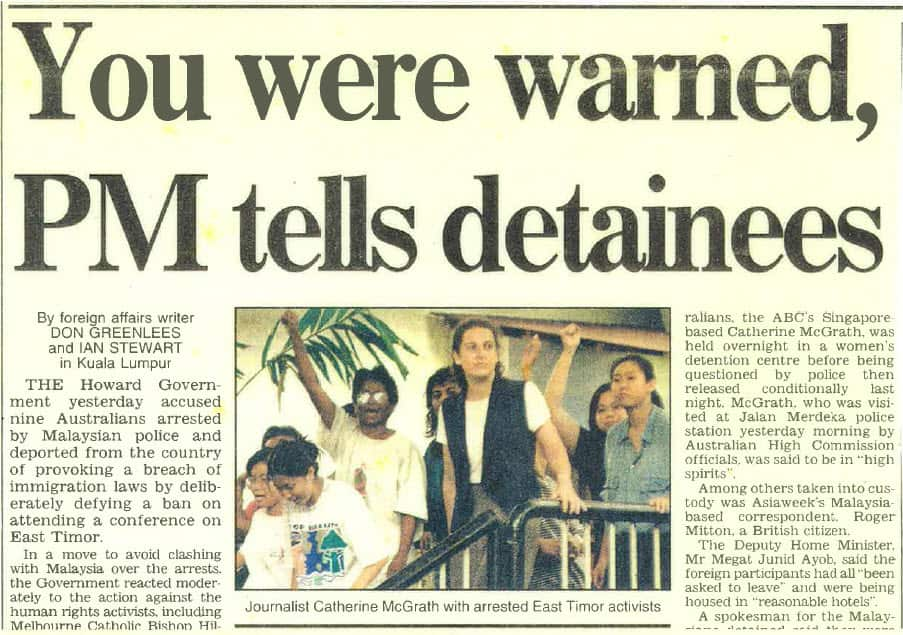The arrest of an ABC Four Corners crew by Malaysian police has sent me back to my own photo archives and pushed me on a trip down memory lane. It has been many years since I was a foreign correspondent in South East Asia but I too was held by the Malaysian police while doing my job in Kuala Lumpur.
I was arrested back in 1996 when I was South East Asia Correspondent for ABC TV and Radio. One thing it taught me is that the arrest will give this issue of the corruption allegations swirling around Prime Minister Najib Razak more publicity in Australia than it had before.

First to the current state of Malaysian politics where the situation on the ground is volatile.
The case around the Malaysian Prime Minister has been brewing for more than a year. It has been making news in Malaysia for some time but last July a story by the Wall Street Journal put it into the international spotlight.
The allegation is that Prime Minister Najib has unexplained wealth of more than a billion dollars. The suggestion - that he has denied - is that he embezzled the money from the country's state development fund in 2013.
Local political protests against Najib have increased. Opposition parties have called for his resignation and now even the country's longest serving Prime Minister Mahathir Mohamad has signed a declaration calling for his removal. There is a power struggle at the top of the ruling party UNMO and Former Prime Minister Mahathir has made a virtue out of his criticism of current Prime Minister Najib. In February he called on Malaysians to rise up against the Prime Minister. Mr Mahathir is now 90. He led Malaysia for 22 years.
CNBC News Asia is reporting pressure is building.
"The fact that Mahathir and the other opposition leaders are banding together to put more pressure on Najib to resign is unprecedented," they quote Wan Saiful Wan Jan, chief executive at the self-described cross-partisan think tank Institute for Democracy and Economic Affairs in their report.
This week the arrest of Australian journalists and crew from ABC’s Four Corners mean that in this country more people will be exposed to the issue.
As for me, well, the photos show a much younger reporter held by Malaysian police over a weekend in November 1996. At the time, a protest conference was being held in Malaysia, hosted by a group of political activists based in KL and from nearby Asian countries. They met to discuss the situation in East Timor. Malaysia's neighbour, Indonesia, was still ruling in East Timor at the time and as a result of ASEAN (Association of South East Asian Nations) solidarity, Malaysia did not want the conference to go ahead there.
What happened next made the news.

On the morning of the conference members of the ruling party UMNO's youth wing raided the conference and ruffled up the participants then the Police Riot Squad arrived to "restore order". The international delegates were deported and local activists were detained. I was covering the event for the ABC and was taken into custody with the locals.
The Malaysian police left me with my mobile phone for the many hours we were driven around KL so I continued to report on this event internationally. When we arrived at the police station my phone was taken away but by then the international headlines had already started. I was in custody for the weekend and faced charges of unlawful assembly, charges that were dropped several months later. While the charges were pending I was released but ordered to return regularly to KL from Singapore, where I was stationed, to report to police.
That event would have gone virtually unnoticed if the police hadn't arrested an international correspondent.
It has left me with a long term interest in Malaysian politics. I miss the country and miss the people; it's a great place.
After the closest election in Malaysian history held in 2013, the ruling coalition led by PM Najib got back in, but only just. The Opposition won just over 50 per cent of the popular vote but lost the overall election. Today, Prime Minister Najib is under more pressure than ever.
Catherine McGrath is Chief Political Correspondent for SBS World News.

